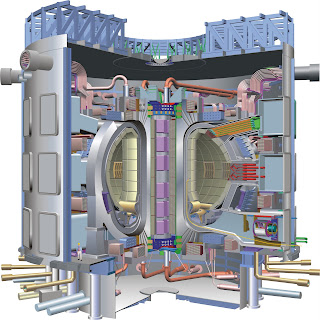The US has an annual trade deficit of $186 Billion with China. The US cites the Yuan's low value as a major source of this deficit. The
US criticizes China on human rights abuses as well as for building up their military and there are plenty of congressmen willing to jump on the anti-China bandwagon. And now to top it all off, there is criticism about
China becoming the world's biggest emitter of CO2. Let's not get facts get in the way of hysteria.
Trade DeficitThe facts are as follows. Firstly, China is not the biggest source of imports for the US, Canada is. In 2005, China was responsible for 14.6% of US imports. Canada was responsible for 16.9%, Japan for 8.2% and Germany 5%. About 50% of the US imports from China were through US multinationals.
China has one of the lowest import barriers in Asia and is also one of the highest recipients of Foreign Direct Investment (FDI). Finally in areas where the US has been investing and is highly innovative, the US actually has a trade
surplus -
; areas such as high-tech items, agriculture and aerospace. The dragon turns out not to be so fierce. It is also worth remembering that much of what China has earned from selling to the US has also been reinvested in US companies and assets.
This is not to say that a trade defecit is good but the reasons do not stem from an unfair China (in fact it is the US that keeps using thuggish state intervention to tame China such as Senators' Lindsey Graham (R-SC) and Chuck Schumer (D-NY) attempt to impose a 27.5 percent tariff on Chinese goods.) but a US that has become less efficient of late, suffering from lack of investment and innovation in key areas. Much of this can be blamed on excessive protection given to US firms, strong unions and heavy handed taxation and regulation of firms. If the US is bad, Europe is far worse (in case the Europeans feel like gloating).
Instead of pointing fingers at China, US legislators should be reminded that the massive trade deficit is only a symptom of far deeper issues in the world's largest economy.
Finally, if we look at the current account deficit (of which trade is a part), then we come to two blaringly obvious conclusions - US consumers should start saving more and borrowing less and the US government needs to start going on a spending diet.
Currency IssuesAnother red herring. The US has a trade defecit with Germany even though the $ has been devalued several times during this period against the euro. At the same time, China has moved away from pegging the Yuan against the US$ and has adjusted it more in the direction of its proper world price. It is estimated that even if China were to completely float their currency, this would not eliminate the US trade deficit with China.
China should be persuaded to float their currency but this is just a red herring used by China bashers.
Human rights and arms spendingChina is guilty of egregious violations of human rights. It has the world's highest execution rates, condones torture, limits free speech, the list goes on. It is right to condemn China for these abuses but it is wrong to use it as a crutch to justify setting up massive trade barriers with China. One of the encouraging signs from China in recent years is that dissent is more openly tolerated. This is logical - as people become wealthier, they demand more rights and more power. People tend to forget that S. Korea was once a dictatorship but is now a thriving democracy.
Prosperity leads to democracy. I am hard pressed to think of a counter-example (although the opposite is definitely not true - India has been a democracy for over 50 years but is one of the poorer countries in the world by per-capita GDP).
I'm inclined to believe that a richer China will have more in common with the West than it will with Iran, for example.
In terms of military spending. A quick look at the CIA world fact book should set things in perspective. China spends about 4.3% of its GDP on military spending, which works out to about $108 Billion based on the official exchange rate. The US spends about 4% of its GDP on the military, which amounts to $528 Billion. $ for $, the US spends over 5x as much as China on it's military. If one adjusts to purchasing power parity, the difference narrows. China, based on a PPP adjusted GDP, spends about $403 Billion while the US spends $519Billion. But as the US produces most of its own military hardware and China imports much of it's hardware so the
non PPP adjusted GDP figures are probably closer to reality.
There is room for concern here; namely, a potential flashpoint over Taiwan. But I think that as the two sides become more interconnected through trade, such a flashpoint is unlikely to materialize into open war.
Global CO2 emitterIn absolute numbers China will probably overtake the US in CO2 emissions very soon but let's not talk about absolute numbers. China has 1 billion people while the US has 300 million. The US (2003) produced about 5.762 Billion tons of Carbon while China produced 3.473 billion tons. On a per capita basis (which is one of the fairest ways to calculate CO2 emissions), the US produced about 19.2 tons per person while China produced about 3.5 tons per person. The US produces over 5x the amount of CO2/person than China. This puts the US at 5th place and puts China at around 80th (Qatar is the worst emitter). Of course China's rate of CO2 production is growing much faster than the US, which is a point of concern but for now we can safely conclude that China is not a CO2 monster.
Finally on the subject of the environment, people should remember that every country that became industrialized went through a phase when the environment suffered in the name of economic growth. It is unfair to single out China in this respect. If anything, China will benefit from modern technology by having factories that pollute less and are considerably more efficient than their counterparts in the West 100 years ago.










